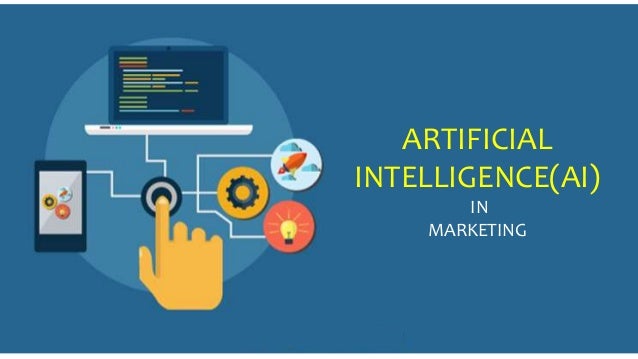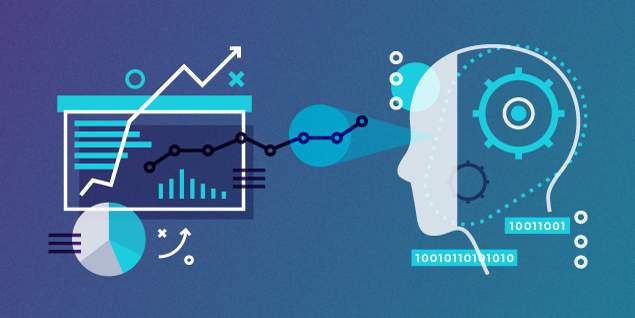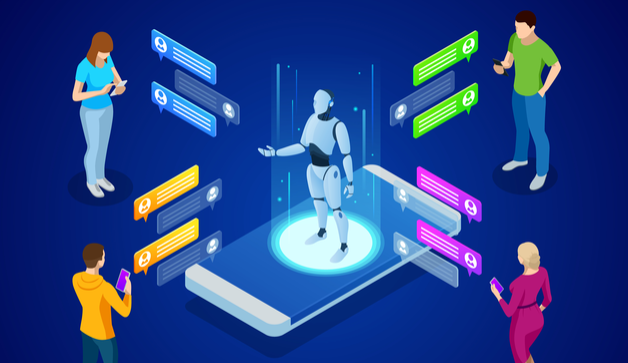
Source: SlideShare
Will the advertising campaigns take advantage of the big technical breakthrough strides that meet the clients when –and where it affects?
Failure to build on developments in new technology such as artificial intelligence will result in rates of consumer interest well behind the digital-enhanced rivals in the arms race which is modern marketing.
For decades, the traditional paradigm since targeted ads has been to identify markers of behavioral similarity (for instance, subscription to a publication of a specific subject matter) and to create consumer content that corresponds to the intended demographic’s presumed needs.
But in the hyper-customized culture today this attitude to “well for the egg, nice for the peek” no longer cuts it off. But the human energy needed to produce fully customized, large-scale promotions and advertisements has rendered it nearly difficult to reach purchasers with surgical precision.
Yet thanks to artificial intelligence, we now have the ability to do exactly that — making opportunities simpler than ever to locate, communicate with, and transform.
Similarly, artificial intelligence allows marketing systems to be automated, eliminating the prohibitive costs that once hampered attempts to optimize 1:1 connectivity and personalized content.
In this post, we will discuss the diverse aspects in which corporations utilize artificial intelligence to boost both the quality and efficacy of their marketing strategies for improved 1:1 connectivity, glimpsing how AI can change the way businesses communicate with consumers in the years ahead.
Artificial intelligence and why it’s essential to the marketing future
AI is an invaluable resource business will leverage to derive valuable information from data troves and leading-edge techniques. Until late, there was a lot of excitement about artificial intelligence (AI), but few people really knew what it was.
Artificial Intelligence is a branch of data science that centres on developing applications that can develop and grow over time. While machines are very good at rapidly collecting vast quantities of data, it has historically been left exclusively for the human intellect to decide what to do with the knowledge and how to use it to achieve a specific objective.
Nowadays, AI’s algorithms are prepared to study and evolve constantly to numerous “inputs”—whether it’s the human audio, x-ray images, or several other pieces of information. So AI’s capacity for disrupting any aspect of industry, from development to customer care, is massive.
Organizations are now utilizing AI to monitor consumer travel, forecast population compliance, foresee sales and deliver customer experience at the highest possible quality. In reality, via a number of AI variants like machine learning, deep learning even language generation processing ( NLP), the innovation is now responsible for bringing the daily innovations we know and love, like Siri, PayPal, Google Maps, etc.
HOW COMPANIES ARE USING ARTIFICIAL INTELLIGENCE TO IMPROVE THEIR MARKETING ROI
Companies have acquired the opportunity through the advent of AI not only to communicate individually through people but also to turn the data they left behind into a roadmap on how to best represent them in the future. As AI algorithms begin to develop and sophisticated computing capacity is more widely available, the position of artificial intelligence in their marketing strategies is increasingly growing.
Artificial intelligence, also used to decode signals hidden within data seas, offers a crucial strategic advantage while offering clear statistical analysis to accurately forecast consumer behavior.
- Use of predictive analysis to predict purchasing patterns
Predictive analytics is utilizing large volumes of data to predict potential results. Companies like Target have been shining the spotlight on data analytics to skilfully predict buyers’ buying patterns.
It shows both the quality of the models utilized by marketing agencies and the continuing need for human supervision throughout the usage of these emerging technologies.

Source: Wizelin Website
- Use deep learning for intelligent identification of object recognition
To retrieve useful knowledge, deep learning allows a machine to “know” to identify trends in pictures, text, voice, and other details. No talk on utilizing deep learning is full without discussing the manner social networking company, Facebook, utilizes Instagram’s user-submitted images to hire a powerful object-recognition system.

Source: Medium
Although the firm maintains that the knowledge collected is not being utilized to further interpret customer behavior, their latest open-sourcing of the software opens the door to the idea that this statistical research could even be leveraged by other businesses.
- Use chatbots to improve customer interaction
Nevertheless, the application of artificial intelligence to improve user service is not just core elements of the software sector. Using smart chatbots, businesses are providing adaptive, sensitive, and interactive 1:1 connectivity to consumers that meet their requests and help them find helpful resources.

Source: Best Artificial Intelligence Chatbot
ESSENCE
With the rise in popularity of AI, so do consumer perceptions that businesses are replicating the level of support it offers. Customers will demand-responsive, appropriate contact from firms in the same manner as corporations are supposed to provide blogs, internet ordering and other omnichannel channels for purchase.
Current advertisers need to continue discovering the various directions in which AI will support their corporate objectives, and then start implementing them. Waiting to adjust to a paradigm change around the market will leave the businesses struggling to keep up.
- Improving customer experience with artificial intelligence
Companies are transforming the way consumers perceive their company, integrating clever chatbots, predictive intelligence and other personalized offerings to have more responsive consumer service. Customers would eventually turn to businesses who offer the most efficient, reliable product at the lowest rate. Artificial intelligence would become the main weapon allowing businesses not only to meet the desires of their clients, but also their own.
- Tailor marketing to clients’ moods with voice recognition
Perhaps interestingly, advanced voice-recognition apps can be mounted in gas station pumps to help consumers with their instructions and identify their psychological response.
Screens at gas stations may include drug suggestions that better match a specific mood, based on the emotions identified. Therefore, AI should help marketers to resolve the obstacles posed by the dissonances between their marketing strategies and the emotions of their consumers.
Likewise, voice-recognition apps may be used to speed up consumer requests, making the movement of customer traffic to smoother.

Source: Becominghuman
Rather than forcing consumers to physically pick the grade and quantity of gas they require, purchases may be simplified by incorporating contactless payment cards and voice-recognition tech that enables customers to express their needs to the machine in a easy and fast manner.
FINAL THOUGHTS: ARTIFICIAL INTELLIGENCE IN MARKETING
When more companies adopt AI, the industry will slowly grow less tolerant of all who fail to adjust.
One noteworthy cautionary tale is the case of Blockbuster, a begun to fall-from-grace film rental service, which chose to match traditional business models against Netflix’s AI-assisted inventions.
Much like forward-thinking companies and start-ups have employed AI to revitalize their markets, smart marketers have begun utilizing AI ‘s predictive forces to improve user loyalty, personify their company, enhance the feasibility of feedback, and standardize inventory management.
AI takes the guesswork out of consumer recognition and marketing, by drawing the curtain down on the responses found in big data. Through groundbreaking advancements such as object detection and voice-recognition, AI helps once-faceless businesses chat, perceive, and comprehend their consumers, very simply.
Now seems to be the period for firms to lay the foundation for what could only become an advanced, smarter, and more efficient marketing arm. Organizations unable to keep up will discover themselves having to adjust when the demand has already shifted.
The willingness to predict the marketing potential will decide which businesses can live and witness marketing.

